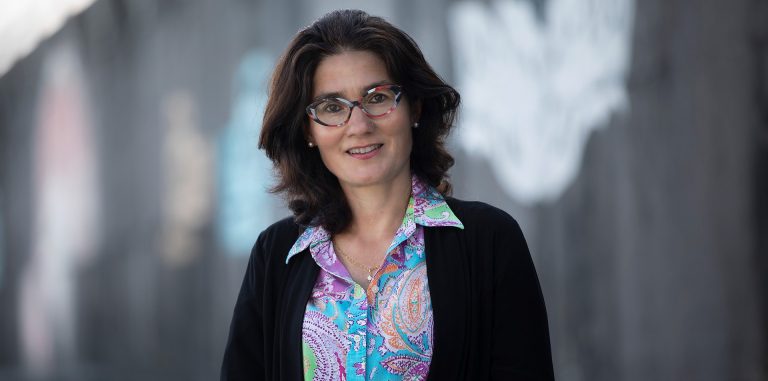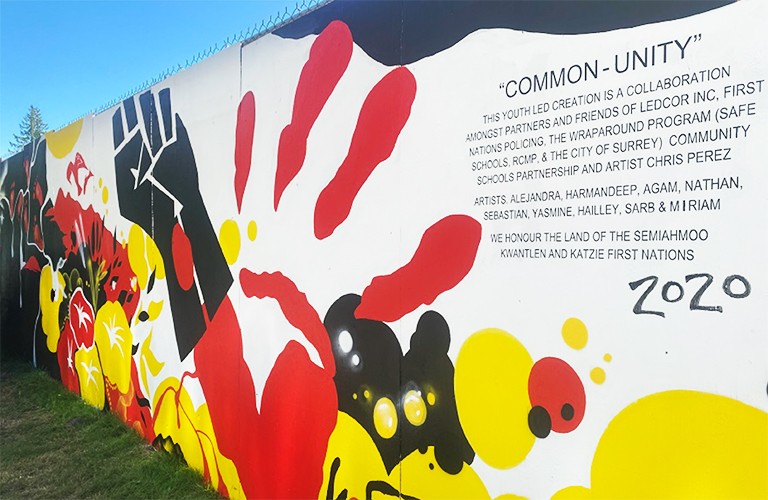Concordia professor publishes new research into bridging human rights education and youth work

How can we best employ human rights education when it comes to working with youth?
This is a topic Natasha Blanchet-Cohen, associate professor of applied human sciences in the Faculty of Arts and Science, has been studying for years.
Over the course of the COVID-19 pandemic, Blanchet-Cohen began researching the issue even more deeply, assisted by a partnership with human rights NGO Equitas. She was influenced by the rise of awareness of civil rights causes during this period, particularly regarding Black, Indigenous and people of colour (BIPOC) communities.
The results of her work are now published in two articles: “‘The pandemic is galvanizing change’: Shifting to a critical and decolonial approach to human rights education with youth,” published last November in the Canadian Journal of Children’s Rights; and “The Transformative Potential of Human Rights Education for Youth Engagement in the Community,” which appeared in the International Journal of Children’s Rights in June 2022.
Blanchet-Cohen’s research documents a community work–based model with two major components: awareness, followed by action.
Once an issue is identified, youth lead their own community action projects (CAPs), connecting them with appropriate organizations and providing support. Equitas partnered with Blanchet-Cohen and her team to better understand what the outcomes of these initiatives were.
 The community action project’s mural in B.C. displays Indigenous medicine wheel colours and the Black Lives Matter fist next to a red hand representing missing and murdered Indigenous women.
The community action project’s mural in B.C. displays Indigenous medicine wheel colours and the Black Lives Matter fist next to a red hand representing missing and murdered Indigenous women.
CAPs in action
Two of the CAPs the youth undertook during the pandemic — one in British Columbia and the other in Ontario — took the form of murals.
The B.C. mural depicts Indigenous medicine wheel colours and places the Black Lives Matter fist along with a red hand representing missing and murdered Indigenous women.
Angie Mapara-Osachoff, Equitas director of Canadian programming, emphasizes the significance of the research collaboration.
“What was so important about this partnership was the opportunity that it gave Equitas and our Canadian partners to think more deeply about what our work is, how we do it, why we do it and the impact that it has,” she says.
Amy Cooper, a knowledge manager with the organization, was so inspired by the community-university partnership that she decided to pursue her PhD at Concordia.
“It’s a rare opportunity to dig deeper and think more critically around how human rights education theory, practice and research work iteratively and contribute to change.”
‘A humbling and transformative journey’
PhD candidate Geneviève Grégoire-Labrecque, who co-authored the article published in the Canadian Journal of Children’s Rights, says the work was eye-opening.
“I became conscious of some of my own biases toward children’s rights. It was a humbling and transformative journey.”
So far, Blanchet-Cohen says the results speak for themselves, with a range of community-action projects coupled with strong positive feedback from participating youth who convey that they feel empowered and with ripples across communities.
“It provoked conversations that hadn’t been brought to light as much as they should be,” she shares.
“We can’t go back. And I think that’s interesting in the context of human rights education.”
Find out more about Concordia’s Department of Applied Human Sciences.


